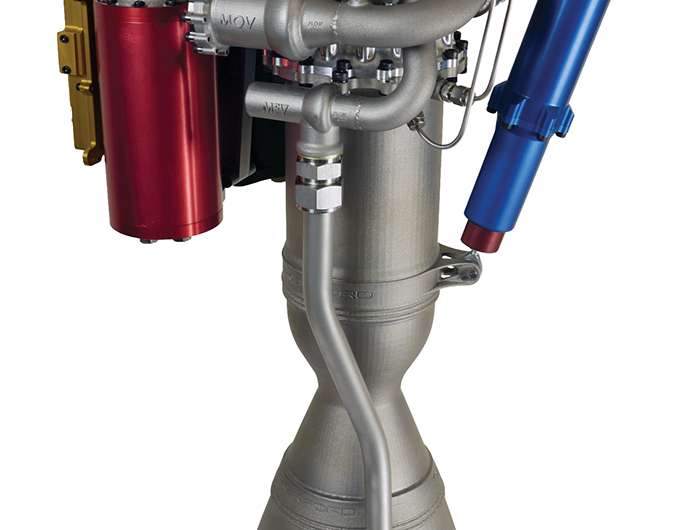April 15, 2015 weblog
Space open for business, says Electron launch system CEO

Space, like business, is all about time and money, said Peter Beck, CEO of Rocket Lab, a US company with a New Zealand subsidiary. The problem, he added, is that, in cost and time, space has remained an incredibly difficult and expensive place to reach. Until now, at least in the world of Rocket Lab.
The company has introduced Electron, a launch vehicle which Beck said is not to be confused with just another launch system but representing a totally different way to build a rocket—a way in which can help businesses grow.
The Electron Launch System's height is 20m. Diameter is 1m. Nominal payload is 100kg. This is a launch system designed to launch small satellites into orbit. Aviation Week said the payloads can be readied for flight at the customer's own facility and then shipped to the launch site, under construction in New Zealand.
Rocket Lab, with its Electron, is proposing a different cost and time proposition: Less cost, less weight, less time to create. Electron is making use of advanced carbon composites for a strong and lightweight flight structure. Key to the Electron's unique composition is its Rutherford engine. It has an electric propulsion cycle; it uses electric motors to drive the turbopumps, and is the first oxygen/hydrocarbon engine to use 3D printing for components. "Rocket Lab is building the regeneratively cooled engine using three-dimensional, additive-manufacturing techniques that include laser and electron-beam sintering, with Inconel and titanium powder as the feed stock," said Aviation Week.
Electron is a two-stage vehicle, using the Rutherford engine on both stages. Electron's first stage is powered by multiple Rutherford engines with a total peak thrust of 146.6kN, enough to lift a fully laden double decker bus off the ground, said the company.
Aviation Week said the company unveiled the Rutherford engine at the Space Symposium in Colorado Springs. "The engine uses high-performance brushless DC electric motors to drive its liquid oxygen and kerosene turbomachinery, drawing power from lithium polymer batteries," said Aviation Week." According to CEO Peter Beck, this eliminates "the complex valves and other plumbing required to use hot gas to turn turbomachinery."
His goal is to make an impact on satellite-reliant businesses now with "the freedom they have been waiting for, which will lead to vast improvements in how we use satellite technology in space," Beck said in 3DPrint.com. "As more small satellite companies are able to quickly reach orbit, we will see immense advancements in communication and imaging technologies."
He sees advances in fuel efficiency, to the extent that it will be possible to deploy a satellite to a commercial orbit using less fuel than a flight from San Francisco to Los Angeles.
Aviation Week said Electron would use battery-powered turbomachinery and other innovations to hold the cost per mission below $5 million. The company said that "the real cost for a dedicated mission can start at $56 million," a pricetag that the team finds "incompatible with the business model of most commercial ventures, and stifles innovation and growth." They said their system is at a price of $4.9 million.
The first Electron launch is planned for 2015, and commercial operations will begin next year.
© 2015 Tech Xplore

















